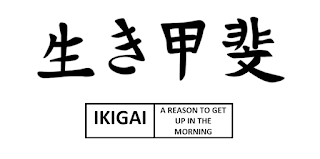OK or Not OK
The OK-not OK matrix
The
psychiatrist Eric Berne, conceived the theory of Transactional Analysis as a
way of examining a person's relationships and interactions with others - “transactional”
referring to verbal and non-verbal interchanges between people.
Berne also came
up with the concept of life script, referring to a set of childhood decisions
made unconsciously, that were influenced by the verbal and non-verbal messages received
and as an attempt to adapt to the environment at the time, in order to survive.
Some of these messages, experiences and adaptive behaviour affect our perception
and interpretation of the world around us.
Life scripts
can have a deep and unconscious effect on our adult lives and often remain
fixed, even though they may have become ineffective or even damaging, unless
considerable effort is made to change these beliefs and adapt to current
circumstances.
The aim of transactional analysis psychotherapy is to bring into awareness, explore, challenge, and change an ineffective life script. Whether you're in business, a professional, a social worker, a parent or someone who strives to achieve personal development, Transactional Analysis theories, is considered to be one effective method of enriching and enhancing your relationships with others and oneself.
Life Positions
Frank Ernst
further developed Berne’s idea of a life script, into the OK matrix, sometimes
known as the ‘OK Corral’ or ‘life positions’.
Life Positions refers to the attitude towards self and others that an individual adopts on the basis of certain experiences and assumptions made in their childhood - like a set of glasses through which we see the world. The OK Matrix helps us analyse how our life position affects the way we relate to or transact with others as well as how others transact with us.
There are four life positions described by Ernst – these are:
· I’m OK—You’re OK; which is short for "I am ok
with myself and with you too."
· I’m OK—You’re not OK; short for "I am ok, but I feel
there is something wrong with other people around me."
· I’m not OK—You’re OK; short for "There is something
wrong with me, but everybody else is ok."
· I’m not OK—You’re not OK; short for "There is something
wrong with me and also with other people – they wrong in some way too."
Have a look at the diagram and think about your general stance in life. You may have a preferred position that you revert to or you may have a tendency to move around the matrix, depending on influences and experiences from situations and circumstances of that life has chucked at you. Your life position may be most obvious in your intimate relationships, because that's where the stakes are highest.


